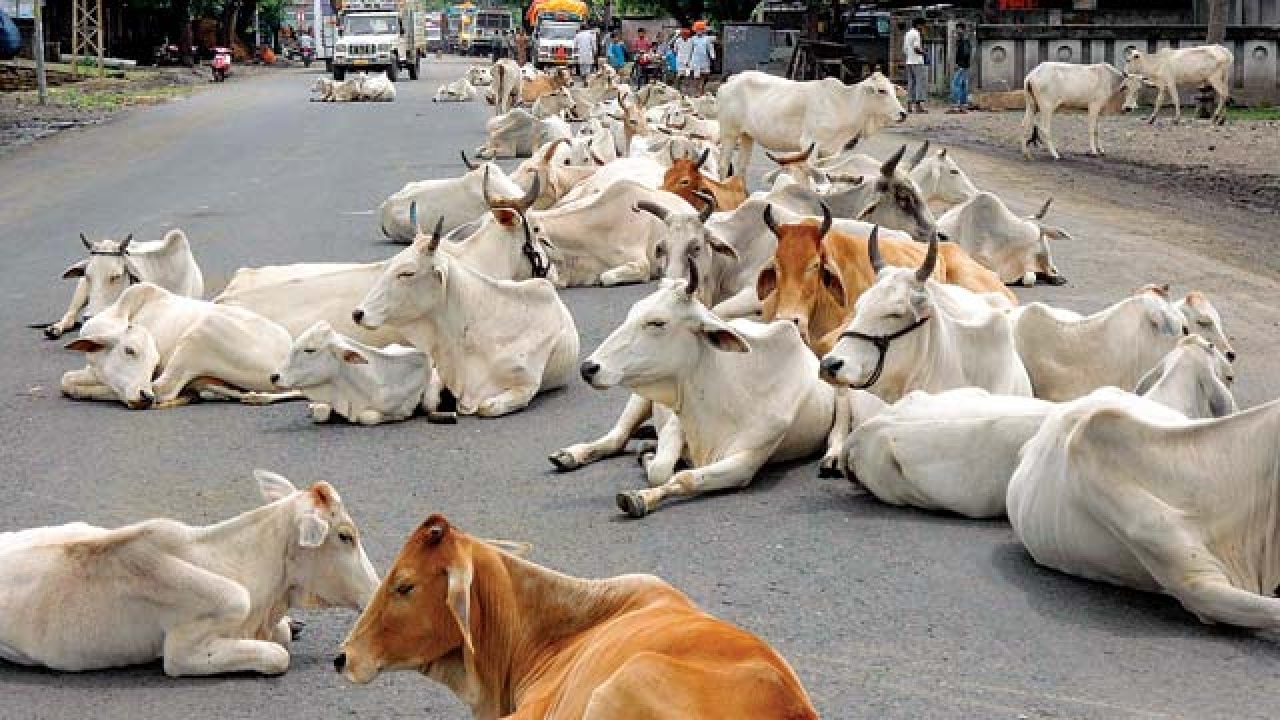
Despite Prime Minister Narendra Modi’s admonition, so-called cow vigilantes have consumed one life by lynching, this time in Rajasthan, accusing the person of illegally smuggling cows for slaughter. In 2015, following the lynching of 52-year-old Mohammad Akhlaq, PM Modi had rightly hit out at the gau rakshaks who were running amok. He had raised a valid point, saying those who profess their love for the Gau Mata should be able to ensure that she does not die eating plastic. Yes, it might be a better vent for the energies of these vigilantes to spread awareness on plastic that kills not just the cows, but also messes up the environment by acting as non-biodegradable pollutants.
Much before Gujarat, which recently passed a strict anti-cow slaughter legislation, Muslim-majority Jammu and Kashmir was the only state where cow slaughter or possession of its meat was a criminal offence carrying a jail sentence not less than 10 years. Of the 25 states where it is banned, only in Delhi and Tamil Nadu is the sentence five years, whereas in other states it is between six months and two years. Kashmir perhaps could be the only region in the world where, according to historians, 19 people have been sentenced to death for cow slaughter. In the past two centuries, since the Sikh governor Dewan Moti Ram banned and made it punishable by death in 1819, the temperament in the region has become such that not only beef, but buff also is abhorred. The base of the famed Kashmiri cuisine, Wazawan, is mutton. Famed chefs would prepare it only from sheep, and didn’t accept even goat meat.
Historian GMD Sufi, records in his book Kashir, how trader Khawaja Mohiuddin Kaos and his son-in-law Mirza Kallu were hanged publicly for possessing cow meat. Their bodies were dragged through the streets of Srinagar for the alleged offence of cow slaughter on the orders of Dewan Chuni Lal, who had taken over from Moti Ram in 1825. On another occasion, a whole family of 17 was burned alive in dry willow and cow dung because of their alleged crime of cow slaughter. This dastardly execution was supervised by a local thanedar. Even after the Treaty of Amritsar in 1846, when Kashmir was traded to Dogra ruler Gulab Singh, the cow remained unchanged in her status. The unknown author of the Letters From India and Kashmir, available in the archives, details in his Letter XVII titled Gulmarg To Murree, the amazement of Kashmiri boys on seeing beef. “The lads, Muhammedans, had never seen beef before, and were much astonished at the large pieces of it in the bazaar,” he wrote.
Political scientist Gull M Wani writes in his Kashmir Politics: Problems and Prospects, that if a person was even suspected of killing a cow, he was imprisoned in chains for the rest of his life. “There were cases of men being boiled in oil for killing a cow,” Wani recorded. “In 1920, out of the 117 prisoners in Kashmir jails, 97 were held for cow slaughter.” In the latter part of their misrule, the Dogra rulers introduced a “cow protection scholarship,” which, historian Mohammad Yusuf Saraf, in his Kashmiris Fight for Freedom writes was a “tax” for the welfare of cows. On account of their magnanimity towards their subjects, the Dogras reduced the sentence from death to 10 years’ rigorous imprisonment and fine. By the end of 1944, the Chief Justice of the J&K High Court had suggested reducing the sentence to only two years, but nothing happened.
After Independence, the penal code stayed on the statute books, unchanged. Srinagar has remained beef-free. But there were feeble efforts by certain individuals asking for lifting the ban in the Muslim-majority state. But largely, beef has remained off the menu, even at a time when political exigencies did force politicians to bring it on their divisive agenda. In a pluralistic society, when a group feels offended, there is a case for avoiding hurting their sentiments and refraining from slaughtering cows. That will foster communal harmony in society and send a good message about their religion and its tenets of peace and love to non-Muslims.
While there is a case for respecting sentiments of the majority in society, it never makes a case for kangaroo court justice. Mughal Emperor Babur’s wasiyat-nama (will) advises his son and successor, Humayun, to steer clear of any kind of religious prejudice and to respect the religious sentiments and customs of people. Anticipating serious crises in community relations, he advises him to stay away from cow slaughter, which will help to earn a place in the hearts of the majority population. He mentions that this small gesture can go a long way in binding people into submission with a chain of obligation and gratitude.
The author is Editor (Strategic Affairs), DNA.